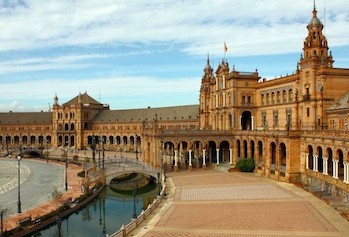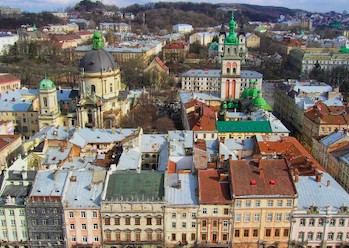Medical tourism in Europe offers a unique blend of high-quality healthcare, advanced medical technologies, and the opportunity to explore diverse cultures. SIXT.VN helps you discover the best destinations for your specific needs, ensuring a seamless and enriching experience. Consider us your premier partner for accessing world-class medical facilities combined with unforgettable travel experiences.
1. What is Medical Tourism in Europe and Why Choose It?
Medical tourism in Europe refers to the practice of traveling to European countries to receive medical treatment. Europe has become a popular destination for medical tourists because it is home to some of the world’s most advanced healthcare systems, highly skilled medical professionals, and state-of-the-art medical facilities. Patients often seek treatments such as surgeries, specialized therapies, and cosmetic procedures at a lower cost than in their home countries, all while enjoying the cultural and historical richness that Europe offers.
1.1. What Makes Europe a Prime Destination for Medical Tourism?
Europe stands out in the medical tourism sector due to several compelling factors. According to the European Travel Commission, medical tourists are drawn to the region’s high standards of care and innovative medical technologies.
- High-Quality Healthcare: European healthcare systems are known for their rigorous standards and advanced medical practices.
- Advanced Technology: Hospitals and clinics across Europe invest in the latest medical technologies, ensuring patients receive cutting-edge treatments.
- Cost-Effectiveness: Many procedures are more affordable in Europe compared to countries like the United States, Canada, or Australia.
- Cultural and Historical Attractions: Patients can combine their medical treatments with tourism, exploring Europe’s rich history and culture.
- Accessibility: Europe is easily accessible from many parts of the world, making it a convenient option for international patients.
1.2. How Does SIXT.VN Facilitate Medical Tourism in Europe?
SIXT.VN can significantly enhance the medical tourism experience by offering comprehensive support and services tailored to the specific needs of medical travelers. SIXT.VN can help in the following ways:
- Personalized Travel Planning: SIXT.VN assists in creating customized travel itineraries that align with treatment schedules and preferences, ensuring a seamless and stress-free experience.
- Airport Transfers: SIXT.VN provides reliable and comfortable airport transfer services, ensuring patients arrive safely and on time for their medical appointments.
- Accommodation Assistance: SIXT.VN helps find suitable lodging options, from hotels to serviced apartments, tailored to the patient’s budget and proximity to medical facilities.
- Translation and Interpretation Services: SIXT.VN offers translation and interpretation services to facilitate clear communication between patients and healthcare providers, bridging language barriers.
- Access to Top Medical Facilities: SIXT.VN collaborates with leading hospitals and clinics across Europe, ensuring patients receive the best possible care.
- Post-Treatment Care and Recovery Planning: SIXT.VN assists in planning post-treatment care and recovery, including accommodations and transportation for follow-up appointments.
- Cultural Integration: SIXT.VN offers insights into local customs, traditions, and attractions, helping patients make the most of their time in Europe.
2. Which European Countries are Leaders in Medical Tourism?
Several European countries have emerged as leaders in the medical tourism industry, each offering unique strengths and specialties. These countries attract medical tourists from around the globe due to their advanced healthcare systems, skilled medical professionals, and specialized treatments. Here are some of the top countries for medical tourism in Europe:
2.1. Germany
Germany is renowned for its advanced medical technologies and comprehensive healthcare system. According to the German National Tourist Board, Germany attracts over 255,000 medical tourists annually.
- Popular Treatments: Oncology, neurosurgery, neurology, rheumatology, and orthopedics.
- Why Germany: Germany is a top choice for those seeking cutting-edge treatments, particularly in cancer care and neurological disorders.
- Key Hospitals:
- Charité – Universitätsmedizin Berlin
- University Hospital Heidelberg
- Ludwig Maximilian University Hospital, Munich
- SIXT.VN Advantage: With SIXT.VN, you can arrange seamless airport transfers, book accommodations near top hospitals, and access translation services, ensuring a comfortable and stress-free experience.
 Medical tourism in Europe, Germany
Medical tourism in Europe, Germany
2.2. Spain
Spain is gaining popularity for its high-quality healthcare and innovative medical practices. The Spanish Tourism Board reports that over 100,000 medical tourists visit Spain each year.
- Popular Treatments: Pediatric oncology, gastrointestinal cancer, neurosurgery, stem cell therapy, and epilepsy treatment.
- Why Spain: Spain is known for its pioneering work in pediatric oncology and neurosurgery, making it a preferred destination for complex medical cases.
- Key Hospitals:
- Quironsalud Barcelona Hospital
- University Hospital La Paz, Madrid
- Teknon Medical Center, Barcelona
- SIXT.VN Advantage: SIXT.VN can assist with booking flights, arranging transportation to and from hospitals, and providing information on local attractions for a relaxing recovery period.
 Medical tourism in Europe, Spain
Medical tourism in Europe, Spain
2.3. Switzerland
Switzerland is synonymous with luxury and high-end medical care. According to Switzerland Tourism, around 35,000 medical tourists visit Switzerland annually.
- Popular Treatments: Plastic surgery, cancer treatment, rehabilitation, orthopedics, neurosurgery, and cardiology.
- Why Switzerland: Switzerland offers a blend of top-tier medical services with a focus on patient comfort and privacy, making it ideal for those seeking exclusive care.
- Key Hospitals:
- University Hospital Zurich
- Hirslanden Clinic, Zurich
- Clinique La Prairie, Montreux
- SIXT.VN Advantage: SIXT.VN ensures premium travel arrangements, including luxury airport transfers, reservations at exclusive hotels, and access to personalized concierge services.
 Medical tourism in Europe, Switzerland
Medical tourism in Europe, Switzerland
2.4. Czech Republic
The Czech Republic is a cost-effective destination for medical tourism, offering quality care at competitive prices. The Czech Tourism Authority estimates that approximately 20,000 medical tourists visit the country each year.
- Popular Treatments: Plastic surgery, robotic surgery, rehabilitation, and orthopedics.
- Why Czech Republic: The Czech Republic is ideal for those seeking affordable medical treatments without compromising on quality.
- Key Hospitals:
- University Hospital Motol, Prague
- Na Homolce Hospital, Prague
- International Clinic of Aesthetic Medicine (ICAM)
- SIXT.VN Advantage: SIXT.VN provides budget-friendly travel solutions, including airport shuttle services, affordable accommodation options, and assistance with navigating local transport.
 Medical tourism in Europe, Czech Republic
Medical tourism in Europe, Czech Republic
2.5. Austria
Austria boasts one of the most advanced healthcare systems in the world, offering a range of specialized medical services. The Austrian National Tourist Office reports that about 10,000 medical tourists visit Austria annually.
- Popular Treatments: Cancer treatment, neurosurgery, rehabilitation, orthopedics, spa and wellness procedures, and cardiac surgery.
- Why Austria: Austria is known for its holistic approach to healthcare, combining advanced medical treatments with wellness therapies.
- Key Hospitals:
- Vienna General Hospital (AKH)
- Medical University of Innsbruck
- Private Clinic Döbling, Vienna
- SIXT.VN Advantage: SIXT.VN can arrange tailored wellness packages, including transportation to spa resorts, bookings at wellness hotels, and access to specialized medical treatments.
 Medical tourism in Europe, Austria
Medical tourism in Europe, Austria
2.6. Italy
Italy offers a combination of quality medical care and a rich cultural experience. The Italian National Tourist Board estimates that around 5,000 medical tourists visit Italy each year.
- Popular Treatments: Cancer treatment, orthopedics and rehabilitation, neurological disorders, check-ups, plastic surgery, bariatrics, cardiac surgery, and cardiology.
- Why Italy: Italy is ideal for those looking to combine medical treatments with a relaxing vacation, enjoying the country’s famous cuisine and historical sites.
- Key Hospitals:
- San Raffaele Hospital, Milan
- Humanitas Research Hospital, Milan
- Policlinico Gemelli, Rome
- SIXT.VN Advantage: SIXT.VN helps create customized itineraries that combine medical appointments with cultural tours, culinary experiences, and relaxation time.
 Medical tourism in Europe, Italy
Medical tourism in Europe, Italy
2.7. Ukraine
Ukraine offers affordable medical treatments, particularly in specialized areas like stem cell therapy. The Ukrainian Tourism Organization reports an increasing interest in medical tourism in the country.
- Popular Treatments: Stem cell therapy, ophthalmology, plastic surgery, dentistry, and cardiac surgery.
- Why Ukraine: Ukraine is known for its unique stem cell therapy options and cost-effective medical services, making it an attractive option for certain treatments.
- Key Hospitals:
- EmCell Clinic, Kyiv
- Institute of Eye Microsurgery, Kyiv
- Oberig University Clinic, Kyiv
- SIXT.VN Advantage: SIXT.VN provides information on specialized medical facilities, assists with travel arrangements, and offers translation services to ensure a smooth and well-informed experience.
 Medical tourism in Europe, Ukraine
Medical tourism in Europe, Ukraine
3. What Factors Should You Consider When Choosing a Destination for Medical Tourism in Europe?
Selecting the right destination for medical tourism in Europe requires careful consideration of various factors to ensure you receive the best possible care and have a positive overall experience. Here are some key factors to consider:
3.1. Quality of Healthcare
The quality of healthcare is paramount when considering medical tourism. Look for countries with advanced healthcare systems, accredited hospitals, and qualified medical professionals.
- Accreditation: Check if the hospitals and clinics are accredited by international organizations such as the Joint Commission International (JCI) or the International Organization for Standardization (ISO).
- Medical Expertise: Research the qualifications and experience of the doctors and specialists who will be providing your treatment.
- Technology and Facilities: Ensure the medical facilities are equipped with modern technology and state-of-the-art equipment.
3.2. Cost of Treatment
The cost of medical treatment can vary significantly between countries. Compare the prices of the procedures you need in different European destinations to find the most cost-effective option.
- Transparent Pricing: Request detailed cost estimates from hospitals and clinics, including all expenses such as consultation fees, surgery costs, and post-operative care.
- Currency Exchange Rates: Consider the currency exchange rates between your home country and the destination country to get an accurate sense of the cost.
- Hidden Costs: Inquire about any potential hidden costs, such as accommodation, transportation, and translation services.
3.3. Travel and Accommodation
Consider the ease of travel to the destination country and the availability of suitable accommodation options.
- Visa Requirements: Check the visa requirements for your nationality and ensure you can obtain the necessary travel documents in time.
- Flight Connectivity: Look for destinations with direct or convenient flight connections from your home country.
- Accommodation Options: Research the availability of hotels, serviced apartments, and other accommodation options near the medical facilities.
3.4. Language and Communication
Effective communication with healthcare providers is essential for a successful medical tourism experience.
- Language Barriers: Consider whether language barriers may be an issue and whether translation services are readily available.
- Communication Tools: Check if the hospitals and clinics offer multilingual staff or provide access to professional interpreters.
- Cultural Sensitivity: Be aware of cultural differences and norms that may affect communication with healthcare providers.
3.5. Safety and Security
Ensure the destination country is safe and secure for medical tourists.
- Political Stability: Research the political stability and security situation in the destination country.
- Health Risks: Check for any health risks or travel advisories issued by your government.
- Emergency Services: Ensure the availability of reliable emergency medical services in case of any unexpected health issues.
3.6. Legal and Ethical Considerations
Be aware of the legal and ethical considerations related to medical tourism.
- Patient Rights: Understand your rights as a medical tourist and ensure they are protected by the laws of the destination country.
- Informed Consent: Ensure you receive clear and comprehensive information about the risks and benefits of the medical procedures you are considering.
- Liability and Redress: Check the legal framework for medical malpractice and the availability of redress mechanisms in case of adverse outcomes.
4. What Are the Most Popular Medical Treatments Sought in Europe?
Europe is renowned for its expertise in a wide range of medical treatments, attracting patients from around the world seeking specialized care and advanced medical procedures. Here are some of the most popular medical treatments sought in Europe:
4.1. Oncology (Cancer Treatment)
Europe is a leader in cancer research and treatment, offering advanced therapies and innovative approaches to combat various types of cancer.
- Advanced Therapies: European hospitals offer cutting-edge treatments such as targeted therapy, immunotherapy, and proton therapy.
- Research and Innovation: Many European medical centers are involved in clinical trials and research programs aimed at developing new cancer treatments.
- Specialized Centers: Europe is home to specialized cancer centers with multidisciplinary teams of oncologists, surgeons, and radiation therapists.
- According to the World Health Organization (WHO), European countries have some of the highest cancer survival rates in the world, reflecting the quality of care and expertise available.
4.2. Neurosurgery
Europe is at the forefront of neurosurgical advancements, offering state-of-the-art techniques and technologies for the treatment of neurological disorders.
- Minimally Invasive Surgery: European neurosurgeons are skilled in performing minimally invasive procedures, reducing recovery times and improving patient outcomes.
- Advanced Imaging Technologies: European hospitals utilize advanced imaging technologies such as MRI, CT scans, and PET scans for accurate diagnosis and treatment planning.
- Specialized Centers: Europe is home to specialized neurosurgery centers with expertise in treating conditions such as brain tumors, spinal disorders, and epilepsy.
- According to the European Association of Neurosurgical Societies (EANS), European neurosurgeons are committed to providing the highest standards of care and advancing the field through research and education.
4.3. Orthopedics
Europe offers comprehensive orthopedic services, including joint replacement, sports medicine, and spine surgery.
- Joint Replacement: European hospitals are known for their expertise in hip, knee, and shoulder replacement surgeries, using advanced techniques and materials.
- Sports Medicine: European sports medicine specialists provide comprehensive care for athletes, including injury prevention, diagnosis, and treatment.
- Spine Surgery: European spine surgeons offer a range of procedures for treating spinal disorders, including minimally invasive surgery and spinal fusion.
- According to the European Federation of National Associations of Orthopaedics and Traumatology (EFORT), European orthopedic surgeons are dedicated to improving the quality of life for patients with musculoskeletal conditions.
4.4. Cardiology
Europe is a leader in cardiovascular care, offering advanced treatments for heart disease and other cardiac conditions.
- Interventional Cardiology: European cardiologists are skilled in performing interventional procedures such as angioplasty, stenting, and ablation.
- Cardiac Surgery: European cardiac surgeons offer a range of surgical procedures, including bypass surgery, valve replacement, and heart transplantation.
- Rehabilitation: European cardiac rehabilitation programs help patients recover and improve their cardiovascular health after surgery or other treatments.
- According to the European Society of Cardiology (ESC), European cardiologists are committed to reducing the burden of cardiovascular disease through prevention, diagnosis, and treatment.
4.5. Plastic Surgery
Europe is a popular destination for plastic surgery, offering a wide range of cosmetic and reconstructive procedures.
- Cosmetic Surgery: European plastic surgeons offer a range of cosmetic procedures such as breast augmentation, liposuction, and facelifts.
- Reconstructive Surgery: European plastic surgeons provide reconstructive surgery for patients with congenital deformities, traumatic injuries, and cancer-related defects.
- Advanced Techniques: European plastic surgeons utilize advanced techniques and technologies to achieve natural-looking results with minimal scarring.
- According to the European Association of Societies of Aesthetic Plastic Surgery (EASAPS), European plastic surgeons are committed to providing safe and ethical cosmetic surgery services.
4.6. Fertility Treatments
Europe offers advanced fertility treatments, including in vitro fertilization (IVF) and other assisted reproductive technologies.
- IVF: European fertility clinics offer IVF treatments with high success rates, using advanced techniques and technologies.
- Egg Donation: European fertility clinics provide access to egg donation programs for women who are unable to conceive using their own eggs.
- Genetic Testing: European fertility clinics offer genetic testing services to screen embryos for genetic disorders before implantation.
- According to the European Society of Human Reproduction and Embryology (ESHRE), European fertility clinics are committed to providing ethical and evidence-based fertility treatments.
5. How Can SIXT.VN Assist You in Planning Your Medical Tourism Trip to Europe?
Planning a medical tourism trip to Europe can be complex, but SIXT.VN is here to simplify the process and ensure a smooth, stress-free experience. We offer a range of services tailored to meet the specific needs of medical travelers, including:
5.1. Personalized Consultation
We start with a personalized consultation to understand your medical needs, preferences, and budget. Our expert consultants will guide you through the process, providing detailed information and answering any questions you may have.
5.2. Destination and Provider Selection
Based on your consultation, we will help you select the best European destination and medical provider for your specific treatment needs. We partner with leading hospitals and clinics across Europe, ensuring you receive the highest quality care.
5.3. Travel Arrangements
We take care of all your travel arrangements, including:
- Flight Bookings: We find the best flight options to suit your schedule and budget.
- Visa Assistance: We provide guidance and support with the visa application process.
- Airport Transfers: We arrange reliable and comfortable airport transfers to ensure you arrive safely and on time for your medical appointments.
5.4. Accommodation
We help you find suitable accommodation options near your chosen medical facility, ranging from hotels to serviced apartments, tailored to your budget and preferences.
5.5. Medical Coordination
We coordinate with the medical provider to ensure all your appointments and treatments are scheduled efficiently. We also provide translation and interpretation services to facilitate clear communication between you and your healthcare team.
5.6. Post-Treatment Support
We assist in planning your post-treatment care and recovery, including arranging follow-up appointments, transportation, and accommodation.
5.7. Travel Insurance
We can help you find comprehensive travel insurance coverage to protect you against unexpected medical expenses, travel disruptions, and other unforeseen events.
6. Understanding the Costs Associated with Medical Tourism in Europe
Navigating the costs associated with medical tourism in Europe requires careful planning and consideration of various factors. Understanding these costs can help you budget effectively and make informed decisions about your medical travel. Here’s a detailed breakdown of the expenses you can expect:
6.1. Treatment Costs
The primary expense in medical tourism is the cost of the medical procedure itself. This can vary widely depending on the type of treatment, the hospital or clinic, and the country you choose.
- Consultation Fees: Initial consultation fees with doctors and specialists.
- Procedure Costs: The cost of the medical procedure, including surgery, therapy, or other treatments.
- Medication Costs: Expenses for prescription medications before, during, and after the procedure.
- Follow-Up Care: Costs for follow-up appointments, tests, and rehabilitation services.
6.2. Travel Expenses
Travel expenses can significantly add to the overall cost of medical tourism. These include:
- Flights: Round-trip airfare to your destination.
- Visa Fees: Costs associated with obtaining a visa, if required.
- Airport Transfers: Transportation from the airport to your accommodation and medical facility.
- Local Transportation: Expenses for local transportation, such as taxis, buses, or rental cars.
6.3. Accommodation Costs
The cost of accommodation depends on the type of lodging you choose and the length of your stay.
- Hotels: Expenses for hotel rooms, which can range from budget-friendly to luxury options.
- Serviced Apartments: Costs for serviced apartments, which may offer more space and amenities for longer stays.
- Guest Houses: More affordable options like guest houses or Airbnb rentals.
6.4. Living Expenses
Daily living expenses should also be factored into your budget.
- Meals: Costs for food and beverages, including dining out and groceries.
- Personal Care: Expenses for personal care items and services.
- Entertainment: Costs for leisure activities, sightseeing, and entertainment.
6.5. Additional Expenses
It’s important to account for potential unexpected expenses.
- Insurance: Costs for medical travel insurance to cover unexpected medical or travel-related issues.
- Translation Services: Expenses for translation services, if needed.
- Contingency Fund: A reserve fund for unexpected costs or emergencies.
7. What Are the Potential Risks and How to Mitigate Them?
Medical tourism offers numerous benefits, but it also comes with potential risks that need to be carefully considered and mitigated. Being aware of these risks and taking proactive measures can help ensure a safe and successful medical travel experience.
7.1. Quality of Care
One of the primary risks is the potential for lower standards of care compared to your home country.
- Risk: Hospitals and clinics in some countries may not adhere to the same rigorous standards as those in your home country.
- Mitigation:
- Research and choose accredited hospitals and clinics with international certifications like JCI or ISO.
- Verify the qualifications and experience of the medical professionals who will be providing your treatment.
- Read reviews and testimonials from other patients to gauge the quality of care.
7.2. Communication Barriers
Language and cultural differences can create communication challenges.
- Risk: Misunderstandings and miscommunications can lead to errors in treatment or dissatisfaction with the care received.
- Mitigation:
- Choose destinations where English or your native language is widely spoken, or where translation services are readily available.
- Ensure that the medical staff is fluent in a language you understand or that qualified interpreters are provided.
- Ask questions and seek clarification on any aspect of your treatment plan that you do not fully understand.
7.3. Travel Complications
Traveling to a foreign country for medical treatment can present various logistical challenges.
- Risk: Flight delays, lost luggage, and unfamiliar surroundings can add stress and complications to your medical journey.
- Mitigation:
- Plan your travel well in advance and allow ample time for layovers and connections.
- Purchase travel insurance to cover potential delays, cancellations, or lost belongings.
- Familiarize yourself with the local customs, laws, and emergency services.
7.4. Post-Operative Care
Ensuring adequate post-operative care is crucial for a successful recovery.
- Risk: Lack of proper follow-up care or difficulty accessing medical assistance after returning home can lead to complications.
- Mitigation:
- Discuss post-operative care plans with your medical provider before traveling.
- Ensure you have access to local medical professionals who can provide follow-up care and address any concerns.
- Carry all necessary medical records and prescriptions with you when you travel.
7.5. Legal and Ethical Considerations
Navigating the legal and ethical aspects of medical tourism can be complex.
- Risk: Lack of legal recourse in case of medical malpractice or adverse outcomes.
- Mitigation:
- Understand your rights as a medical tourist and the legal framework for medical malpractice in the destination country.
- Ensure you have a clear understanding of the risks and benefits of the medical procedures you are considering.
- Obtain informed consent and document all agreements with the medical provider.
8. Travel Tips for Medical Tourists Visiting Europe
Traveling to Europe for medical treatment requires careful planning and preparation. Here are some essential travel tips to help ensure a smooth and successful experience:
8.1. Pre-Departure Checklist
Before you leave for your medical tourism trip, make sure to complete the following tasks:
- Consult with Your Doctor: Discuss your travel plans and medical treatment with your doctor to ensure you are fit to travel.
- Obtain Medical Records: Gather all relevant medical records, including test results, imaging reports, and treatment summaries.
- Pack Medications: Pack an adequate supply of all necessary medications, along with prescriptions and a letter from your doctor.
- Get Vaccinations: Ensure you are up-to-date on all recommended vaccinations for your destination.
- Purchase Travel Insurance: Obtain comprehensive travel insurance coverage to protect you against unexpected medical expenses, travel disruptions, and other unforeseen events.
8.2. What to Pack
Pack essential items to make your medical travel more comfortable:
- Comfortable Clothing: Pack loose-fitting, comfortable clothing that is easy to wear during and after your medical procedure.
- Personal Care Items: Bring your favorite personal care items, such as toiletries, skincare products, and makeup.
- Entertainment: Pack books, magazines, or electronic devices to keep you entertained during your recovery.
- Assistive Devices: Bring any necessary assistive devices, such as glasses, hearing aids, or walking aids.
- Important Documents: Keep all important documents, such as your passport, visa, medical records, and insurance information, in a safe and easily accessible place.
8.3. During Your Stay
Make the most of your time in Europe while focusing on your medical treatment:
- Follow Medical Instructions: Adhere strictly to all medical instructions and attend all scheduled appointments.
- Stay Hydrated: Drink plenty of water to stay hydrated, especially after medical procedures.
- Rest and Recover: Allow yourself ample time to rest and recover after your treatment.
- Explore Local Culture: If you feel well enough, take the opportunity to explore the local culture and attractions.
- Stay Connected: Keep in touch with family and friends back home and let them know how you are doing.
8.4. Post-Treatment Care
Ensure you have a smooth transition back home:
- Follow-Up Appointments: Schedule any necessary follow-up appointments with your medical provider or local healthcare professionals.
- Medication Management: Continue taking all prescribed medications as directed by your doctor.
- Rehabilitation: Participate in any recommended rehabilitation programs to aid in your recovery.
- Healthy Lifestyle: Adopt a healthy lifestyle, including regular exercise and a balanced diet, to maintain your well-being.
9. Success Stories: Real-Life Experiences of Medical Tourists in Europe
Hearing from others who have undergone medical tourism in Europe can provide valuable insights and reassurance. Here are a few success stories from real-life medical tourists:
9.1. John’s Cancer Treatment in Germany
John, a 55-year-old from the United States, was diagnosed with prostate cancer and sought treatment at a leading cancer center in Germany.
- Challenge: John wanted access to advanced cancer therapies that were not readily available in the US.
- Solution: He traveled to Germany and received proton therapy, a highly precise form of radiation treatment.
- Outcome: John experienced minimal side effects and achieved complete remission of his cancer.
- John’s Takeaway: “The quality of care in Germany was exceptional. The doctors were knowledgeable and compassionate, and the facilities were state-of-the-art. I am grateful for the opportunity to receive this life-saving treatment.”
9.2. Maria’s Hip Replacement in Spain
Maria, a 68-year-old from the UK, suffered from severe osteoarthritis and needed a hip replacement.
- Challenge: Maria faced long waiting times for surgery in the UK.
- Solution: She traveled to Spain and underwent hip replacement surgery at a private hospital.
- Outcome: Maria experienced a quick recovery and was able to resume her active lifestyle within a few months.
- Maria’s Takeaway: “The surgery in Spain was excellent, and the recovery was much faster than I expected. The staff were attentive and caring, and I enjoyed the opportunity to relax and recuperate in a beautiful setting.”
9.3. David’s Plastic Surgery in the Czech Republic
David, a 42-year-old from Australia, wanted to undergo cosmetic surgery to improve his appearance.
- Challenge: David found the cost of plastic surgery in Australia to be prohibitive.
- Solution: He traveled to the Czech Republic and underwent a facelift and eyelid surgery at a reputable clinic.
- Outcome: David was thrilled with the results and found the cost to be significantly lower than in Australia.
- David’s Takeaway: “The plastic surgery in the Czech Republic was top-notch, and the price was very reasonable. I am very happy with the results and would highly recommend this destination to others.”
10. Frequently Asked Questions (FAQs) About Medical Tourism in Europe
Here are some frequently asked questions about medical tourism in Europe to help you make informed decisions:
10.1. Is Medical Tourism in Europe Safe?
Yes, medical tourism in Europe can be safe, provided you choose accredited hospitals and qualified medical professionals.
10.2. What Are the Benefits of Medical Tourism in Europe?
The benefits include access to high-quality care, advanced medical technologies, and cost-effective treatments.
10.3. What Types of Treatments Are Available in Europe?
Europe offers a wide range of treatments, including oncology, neurosurgery, orthopedics, cardiology, plastic surgery, and fertility treatments.
10.4. How Do I Find a Reputable Hospital in Europe?
Look for hospitals that are accredited by international organizations such as JCI or ISO.
10.5. How Do I Pay for Medical Treatment in Europe?
Payment methods vary, but most hospitals accept credit cards, bank transfers, and cash.
10.6. Do I Need a Visa to Travel to Europe for Medical Treatment?
Visa requirements depend on your nationality; check the specific requirements for your destination country.
10.7. How Can SIXT.VN Help Me Plan My Medical Tourism Trip?
SIXT.VN offers personalized consultation, destination and provider selection, travel arrangements, accommodation assistance, and medical coordination services.
10.8. What Should I Do After Returning Home from My Medical Tourism Trip?
Follow up with your local doctor, continue taking any prescribed medications, and attend any necessary rehabilitation programs.
10.9. What Are the Legal Considerations for Medical Tourism?
Understand your rights as a medical tourist and the legal framework for medical malpractice in the destination country.
10.10. How Can I Mitigate the Risks of Medical Tourism?
Choose accredited hospitals, verify the qualifications of medical professionals, and purchase comprehensive travel insurance.
Embarking on a medical tourism journey in Europe can open doors to world-class healthcare and cultural experiences. With the right planning and support, you can achieve optimal health outcomes while enjoying the beauty and diversity of Europe. Let SIXT.VN be your trusted partner in this transformative journey, ensuring every detail is handled with care and expertise.
Ready to start your medical tourism journey in Europe? Contact SIXT.VN today for a personalized consultation. Address: 260 Cau Giay, Hanoi, Vietnam. Hotline/Whatsapp: +84 986 244 358. Website: SIXT.VN.



